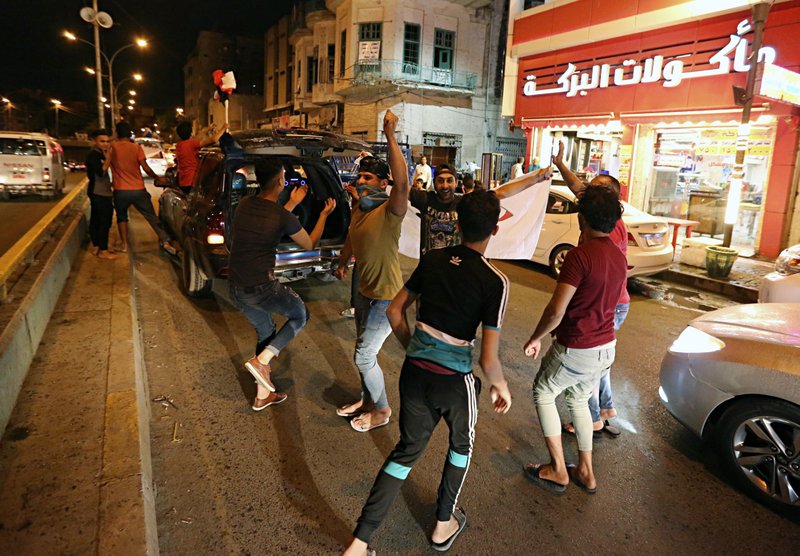BAGHDAD -- The political coalition of influential Shiite cleric Muqtada al-Sadr took an early lead in Iraq's national elections in partial returns announced late Sunday by the Iraqi electoral commission.
An alliance of candidates linked to Iraq's powerful Shiite paramilitary groups was in second. The alliance is headed by Hadi al-Amiri, a former minister of transport with close ties to Iran who became a senior commander of paramilitary fighters in the fight against the Islamic State extremist group.
Prime Minister Haider al-Abadi performed poorly across majority Shiite provinces that should have been his base of support.
The announcement came just over 24 hours after polls closed across the country amid record-low voter turnout. It included full returns from only 10 of the country's 19 provinces, including the provinces of Baghdad and Basra.
Members of the national election commission read out vote tallies for each candidate list in each of the 10 provinces on national TV. By the end of the announcement, al-Sadr's list had the highest popular vote, followed by al-Amiri's.
Seats in parliament will be allocated proportionally to coalitions once all votes are counted. The commission gave no indication on when further results would be announced.
Al-Abadi sought to retain his post as prime minister after overseeing the military defeat of the Islamic State, but faced stiff competition from his predecessor, Nouri al-Maliki, as well as al-Sadr and the Fatah alliance of candidates with paramilitary ties.
Many of the Fatah candidates were militia commanders before they cut their official ties with the force in order to seek office.
Fatah's strong result will be seen as a victory for Iran as it seeks to protect its interests in Iraq, including the militias it finances and has sometimes directed to fight alongside its forces in Syria. Al-Sadr is a staunch foe of Iranian and American influence in Iraqi politics.
The elections held Saturday were the first since Iraq declared victory over Islamic State fighters and the fourth since the 2003 U.S.-led toppling of Saddam Hussein. Officials said turnout was only 44 percent, the lowest ever since Saddam's ouster.
Any political party or alliance must gain a majority of Iraq's 329 seats in parliament to be able to choose a prime minister and form a government. Dozens of alliances ran for office in these elections, and months of negotiations are expected before any one alliance can pull together the 165 required seats.
Information for this article was contributed by Qassim Abdul-Zahra of The Associated Press.
A Section on 05/14/2018

